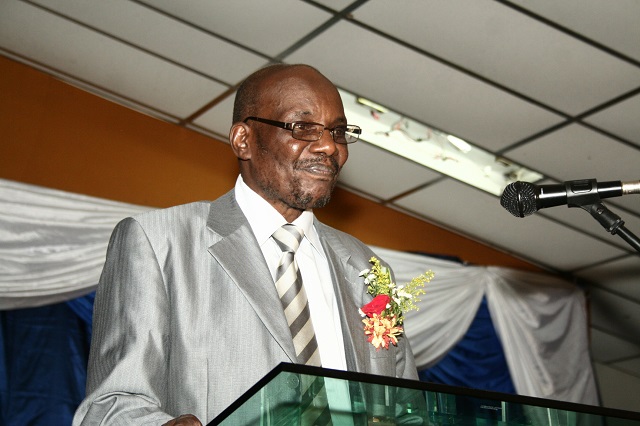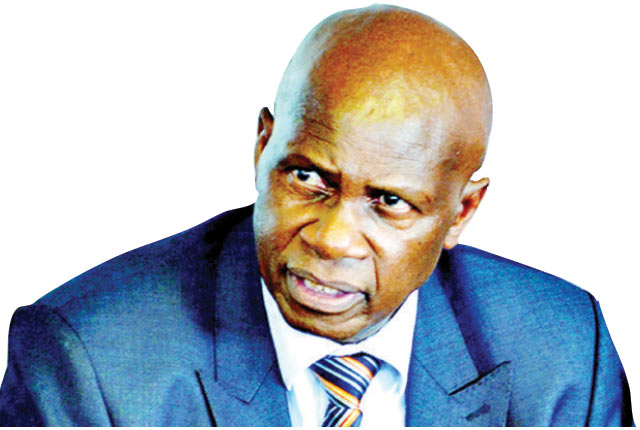Mbudzi’s footprints in education will remain indelible

Learnmore Nyoni
A sombre atmosphere engulfed Kwekwe Polytechnic campus last Friday when sad news started to filter in that the former and longest serving principal of the college, Mr Joyce Cephas Mbudzi, had passed on.
The news of the death of Mr Mbudzi was so devastating that the lectures had to be temporarily suspended as both staff and students reflected on the harsh reality that one of the institution’s greatest icons was no more.
Mr Mbudzi retired from his post as principal in July 2017 after serving the college for almost 20 years.
The educationist who is survived by four children and five grandchildren, was given a huge send off when he retired as his farewell party was graced by almost all polytechnics and teachers’ colleges principals as well as several heads of industrial training centres.
Mr Mbudzi himself described the party as the largest gathering that the Ministry of Higher and Tertiary Education commanded outside formal programmes.
Born on June 26, 1950, in Masvingo under Chief Charumbira, Mr Mbudzi worked relentlessly to see the transformation of higher and tertiary education in Zimbabwe, especially at polytechnics.
Inspired by his not so rosy past, where some of his siblings had to quit school so that his poor family could concentrate on him in as far as school fees was concerned, Mr Mbudzi worked hard to ensure that all underprivileged children got a decent education.
Mr Mbudzi had to abandon his love for Mathematics and Sciences to pursue a teacher training course at Gweru Teachers’ College, which did not require any fees.
It explains probably why he was so close to his last born daughter, Rumbidzai, who then lived her father’s dream by training as a medical doctor.
Mr Mbudzi always said he was happy that his young girl achieved what he wished to achieve but circumstances would not allow him.
Rumbidzai and her siblings described Mr Mbudzi as a “Helicopter Dad” as he was always overprotective when it came to the welfare of his children.
Mrs Mbudzi’s younger sister, Willia, once accused Mr Mbudzi of being overprotective and too firm. She said she had to sneak out every time she wanted to meet the man who later became her husband, the former Director of Central Intelligence Organisation, Happyton Bonyongwe.
I first met the man Joyce Mbudzi in February of 2010, just a few days after joining Kwekwe Polytechnic’s National and Strategic Studies department as a lecturer when he summoned me to his office to assign me the role of ensuring that I come up with a plan to build the image of the institution.
His major aim was to see an aggressive marketing of the Bachelor of Technology degree in polytechnics, the first of which was started by him at Kwekwe Polytechnic.
I am proud that I was up to the task, from the day I assumed the new office in the department of information. I automatically became his de facto press officer, tasked with the responsibility of seeing that his vision to transform the institution got a wide national and international appeal.
I am contented that as Mr Mbudzi lies silently in his grave, he is a happy man after seeing the success in our publicity plan with the polytechnic degree programme attracting international appeal and recognition which resulted in him scooping so many awards both locally and internationally.
In my introductory meeting with him, I quickly realised three of his major qualities that I will never forget. He was a visionary; he was a brave goal getter who was very aggressive in achieving his vision. His leadership was results-oriented; he had a sweet tongue and sharp brains.
He was not apologetic for what he believed in. I remember attending an Employers’ Confederation of Zimbabwe (Emcoz) meeting with polytechnic principals, vice chancellors of universities and other members from the Ministry of Higher Education where they grumbled after he delivered his presentation on the role played by polytechnics in developing the economy through import substitution.
He told the meeting that university degrees were useless, arguing that most university graduates were selling airtime on the streets while polytechnic graduates were coming up with tangible solutions for the development of the economy. His words did not go down well with his peers but he was was not deterred because he believed in what he was saying. He was unpopular with many people for saying it as it is.
In our first strategic planning meeting facilitated by motivational speaker Mr Milton Kamwendo at Ancient City Lodge in Masvingo, Mr Mbudzi told his management team that everything was achievable if one puts his mind to the task.
He said: “I brought you here, to the Great Zimbabwe monuments which has acquired world heritage site status but were built by ordinary men so that you see that extra-ordinary things are done by ordinary men.”
I was to see the motivational speaker Mr Kamwendo taking motivational notes from Mr Mbudzi as he addressed the delegates.
I am very sure that many lecturers who had a chance to work with Mr Mbudzi developed academically as he always challenged them.
Towards the end of his career in education, I was tasked to do a documentary on his life and work. In one of the interviews, former tertiary education programmes director in the Ministry of Higher and Tertiary Education, Science and Technological Development Mr John Dewah said what he will miss most about Mr Mbudzi was his ability to speak his mind regardless of how his audience would receive it.
His actual words were, “Our meetings will never be the same without him. He would say out his mind without fear.”
In another interview, Tafara, Mr Mbudzi’s first born son described his father as a caring and loving father who was always home to spend time with his family.
His footprints in the Ministry of Higher Education will remain indelible for having pushed against all odds, for the adoption of competency based training in Zimbabwe and also the introduction of degrees in polytechnics.
Mr Mbudzi was one bold risk taker; he took down anything in the way of his vision. I remember when he was appointed the acting director of quality assurance in the Ministry of Higher Education, in no time he single-handedly and boldly so, changed the whole polytechnic curriculum making practical coursework to constitute 60 percent and final exam 40 percent, a system still functional in polytechnics today.
Strangely, behind that bravado, aggressiveness and assertiveness of this academic lay a loving, kind and caring soul but only visibly to those that were close to him. Whether it was kindness or cowardice of him, many lecturers knew that they could only win Mr Mbudzi if they confronted him in his office but they had to do so respectfully.
Mr Mbudzi will be remembered for his integrity, commitment to duty, his drive for Technical Vocational Education and Training (TVET) and love to see the upliftment of the underprivileged.
He was stern, assertive, articulate, self-motivated and sharp.
Rest in eternal peace Comrade, you fought a good fight “Dr TVET”, you will forever be remembered.










Comments